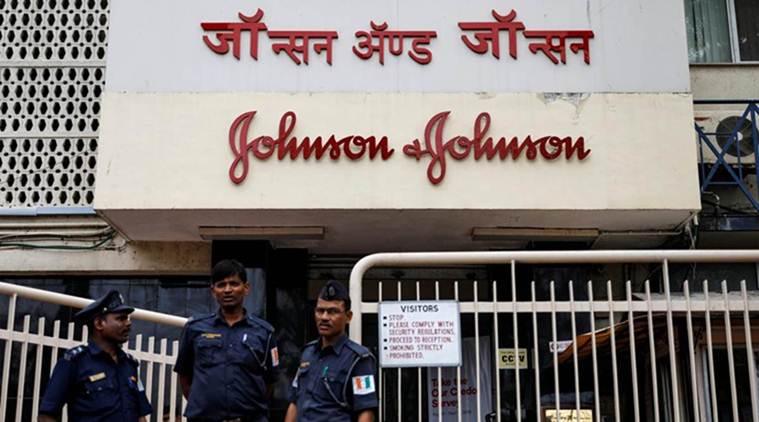Kaunain Sheriff M is an award-winning investigative journalist and the National Health Editor at The Indian Express. He is the author of Johnson & Johnson Files: The Indian Secrets of a Global Giant, an investigation into one of the world’s most powerful pharmaceutical companies. With over a decade of experience, Kaunain brings deep expertise in three areas of investigative journalism: law, health, and data. He currently leads The Indian Express newsroom’s in-depth coverage of health. His work has earned some of the most prestigious honours in journalism, including the Ramnath Goenka Award for Excellence in Journalism, the Society of Publishers in Asia (SOPA) Award, and the Mumbai Press Club’s Red Ink Award. Kaunain has also collaborated on major global investigations. He was part of the Implant Files project with the International Consortium of Investigative Journalists (ICIJ), which exposed malpractices in the medical device industry across the world. He also contributed to an international investigation that uncovered how a Chinese big-data firm was monitoring thousands of prominent Indian individuals and institutions in real time. Over the years, he has reported on several high-profile criminal trials, including the Hashimpura massacre, the 2G spectrum scam, and the coal block allocation case. Within The Indian Express, he has been honoured three times with the Indian Express Excellence Award for his investigations—on the anti-Sikh riots, the Vyapam exam scam, and the abuse of the National Security Act in Uttar Pradesh. ... Read More
#ImplantFiles: Johnson & Johnson implant patients object to compensation package
While raising the objection, patients pointed to how India does not issue disability certificates for metal ion poisoning, which is the main cause of the ASR implants being termed faulty.
 The Supreme Court had on January 11 accepted the government’s formula and directed it to expeditiously compensate the victims.
The Supreme Court had on January 11 accepted the government’s formula and directed it to expeditiously compensate the victims.
Over 50 patients who got faulty Articular Surface Replacement (ASR) hip implants manufactured by Johnson & Johnson have raised objections on at least 10 counts on the compensation package determined by the government.
Detailing their objections, last week, the patients, part of the Hip Implant Patients Support Group, submitted a letter before the expert committee headed by Dr R K Arya, Director, Sports Injury Centre, Safdarjung Hospital, that’s examining the compensation to Indian patients. According to the formula arrived at by the government in November last year, each of the victims was to get damages between Rs 20 lakh and Rs 1.22 crore, depending on risk factors, disability and age. Earlier, on January 9, the patients had presented their preliminary objections before the committee.
The Supreme Court had on January 11 accepted the government’s formula and directed it to expeditiously compensate the victims. The patients, however, have now written to the committee, saying the J&J implant patients object to compensation package SC, “while taking cognisance of the steps taken by the Government”, did not go “into the merits of the compensation formula” and that the SC’s order “may not be used as an excuse to deny patients the due modifications and changes to the formula that would be necessary to ensure a more just compensation for their sufferings”.
The letter, accessed by The Indian Express, shows that the patients have sought an increase in the base amount, which has been fixed at Rs 20 lakh. The base amount was calculated on the formula that is used for compensating participants of clinical trials, something the implant victims have objected to.
“In a clinical trial, there is a certain presumption of risk because the drug is under study for safety and efficacy. However, in the case of ASR hip implants, the device was approved for commercial sale by the regulatory authority based on which consumers assumed the device was safe and adequately tested… (Since) the harm caused to patients was a result of negligence… the base amount cannot simply be at par with the base amount for clinical trials,” the letter states.
The patients have also objected to the condition that they must mandatorily submit “disability certificates” to establish the risk factor to determine the quantum of compensation. While raising the objection, they pointed to how India does not issue disability certificates for metal ion poisoning, which is the main cause of the ASR implants being termed faulty.
“A disability certificate… only takes into account narrow range of physical disability and would not account for… mental disability. Consider also that the chief reason for the recall and the primary cause for disability in the present and future is metal-ion poisoning. However, this is not considered for issuing a conventional disability certificate in India,” the letter states, while adding that there are “ no uniform practices or standard protocols for issuance of disability certificates across government hospitals”.
The patients have objected to the formula that assigns them the risk factor similar to that for “terminally ill patients”. “…ASR patients were using an approved product, not an experimental one… we assert that ASR patients can in no circumstances be compared to terminally ill patients or those with high risk and expected survival between 6 to 24 months,” the letter states, while seeking that “all patients are assigned a minimum risk value of 2.5” and those who have undergone multiple revision surgeries be assigned assign a higher risk factor.
Currently, victims with a minimum 20 per cent disability have been assigned risk value of 1 and those with 50 per cent disability have been assigned the maximum risk factor at 2.5. The formula is silent for patients with below 20 per cent disability.
The patients have also sought “proactive assistance” of the committee in cases where patients have lost documents.



- 01
- 02
- 03





























